Evelyn Brodkin in conversation with Mary Murphy and Joe Whelan – April 20th 2021 – 16:00 GMT
Abstract:
Street-level organizations (SLOs) – those organizations that directly bring policy to people – play an important and familiar role as the operational arm of the state. However, they are more than mere policy implementers; they also should be understood as mediators of welfare state policies and politics. Tasked with the responsibility for addressing social needs and problems, SLOs often occupy a deeply conflicted political space.
What happens in that space, why, and to what effect are key questions for street-level research and theory. Drawing on my recent work, including studies of workfare and asylum, I will discuss why SLOs matter to welfare state politics and what a street-level approach can reveal about how welfare politics takes place in everyday organizational life.
Recap:
Each seminar was recorded and featured one or more readings, please find these below.
Click here to watch the recording.
We are grateful to have had Evelyn Brodkin speak to us about Street-Level Organisations (SLOs) through the specific example of Street-Level Welfare (SLW). We include a selection of slides from Evelyn’s presentation below:
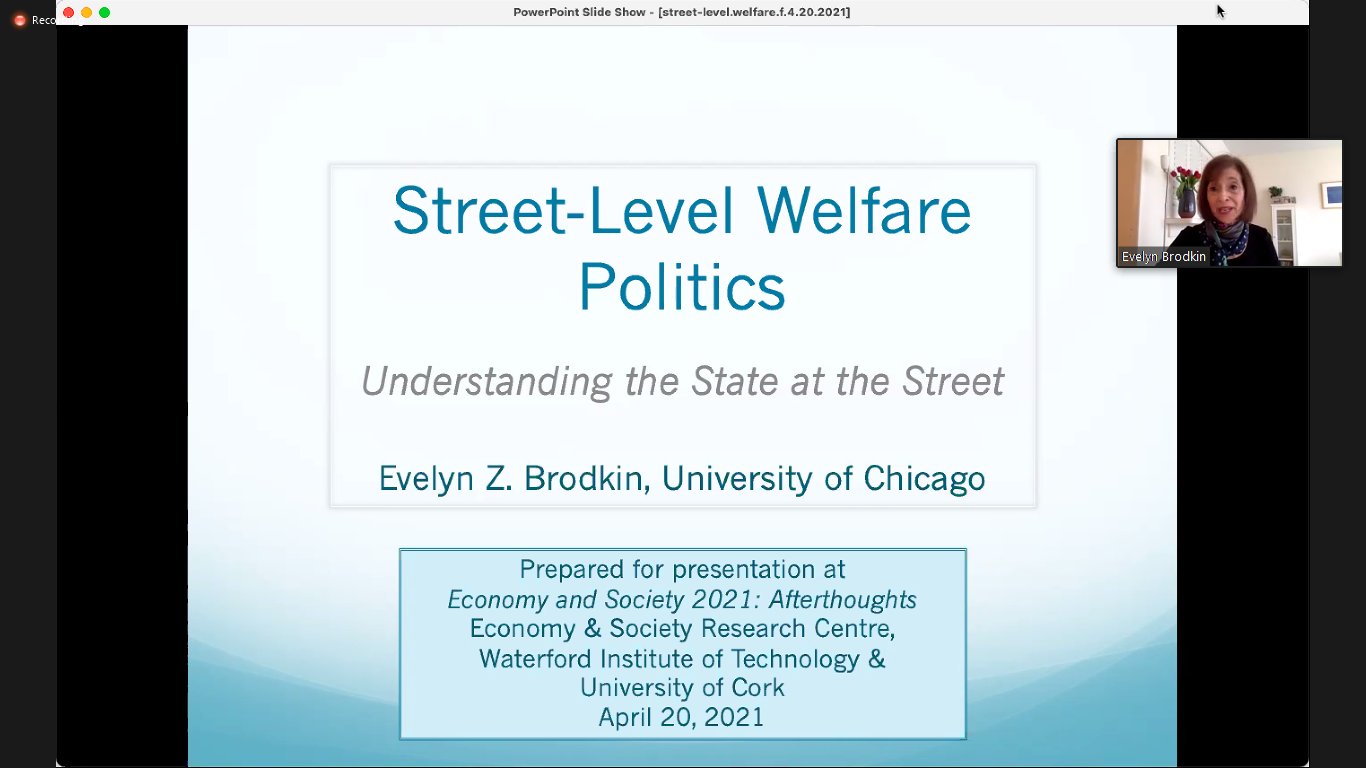
What are SLOs? These are the organisations which deliver policy to people at a level that they will encounter directly – an unemployment caseworker for example. This is opposed to policy as it appears in parliamentary debates or in white papers.
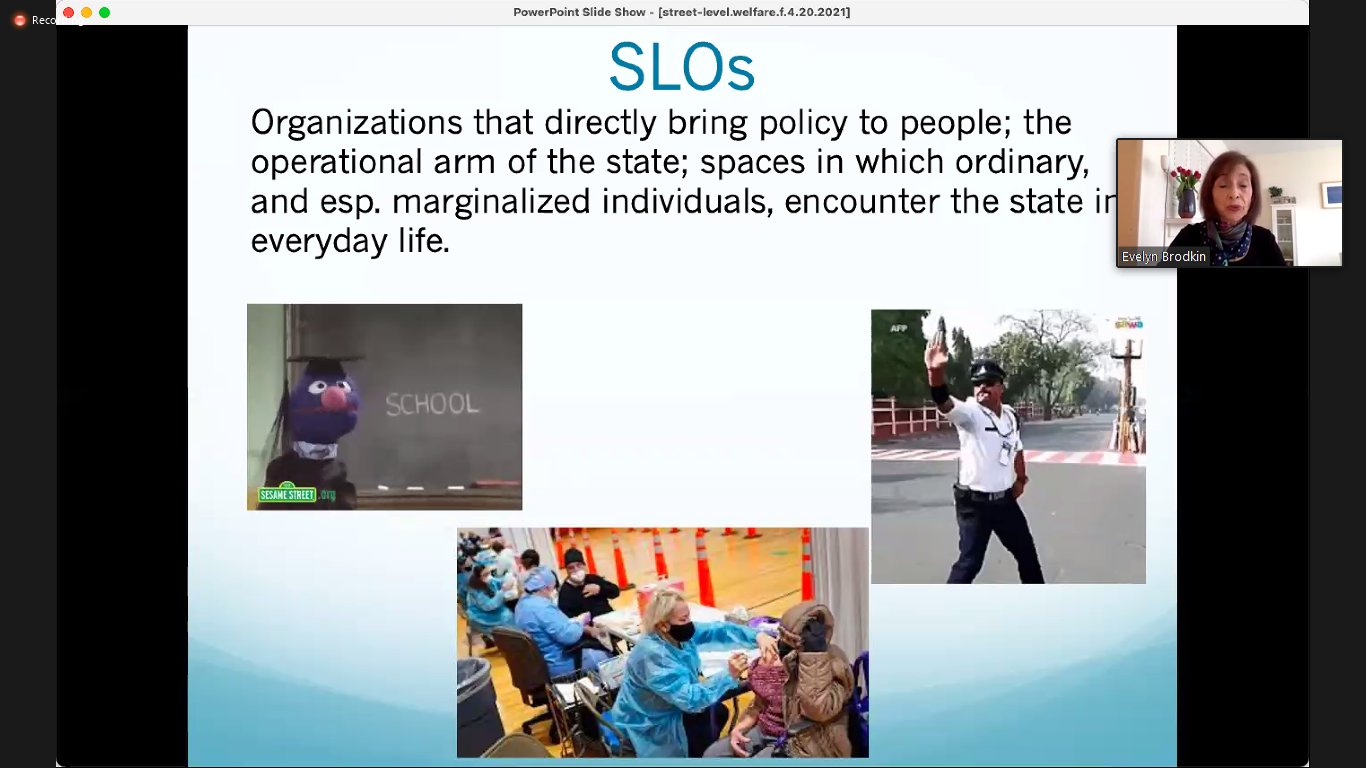
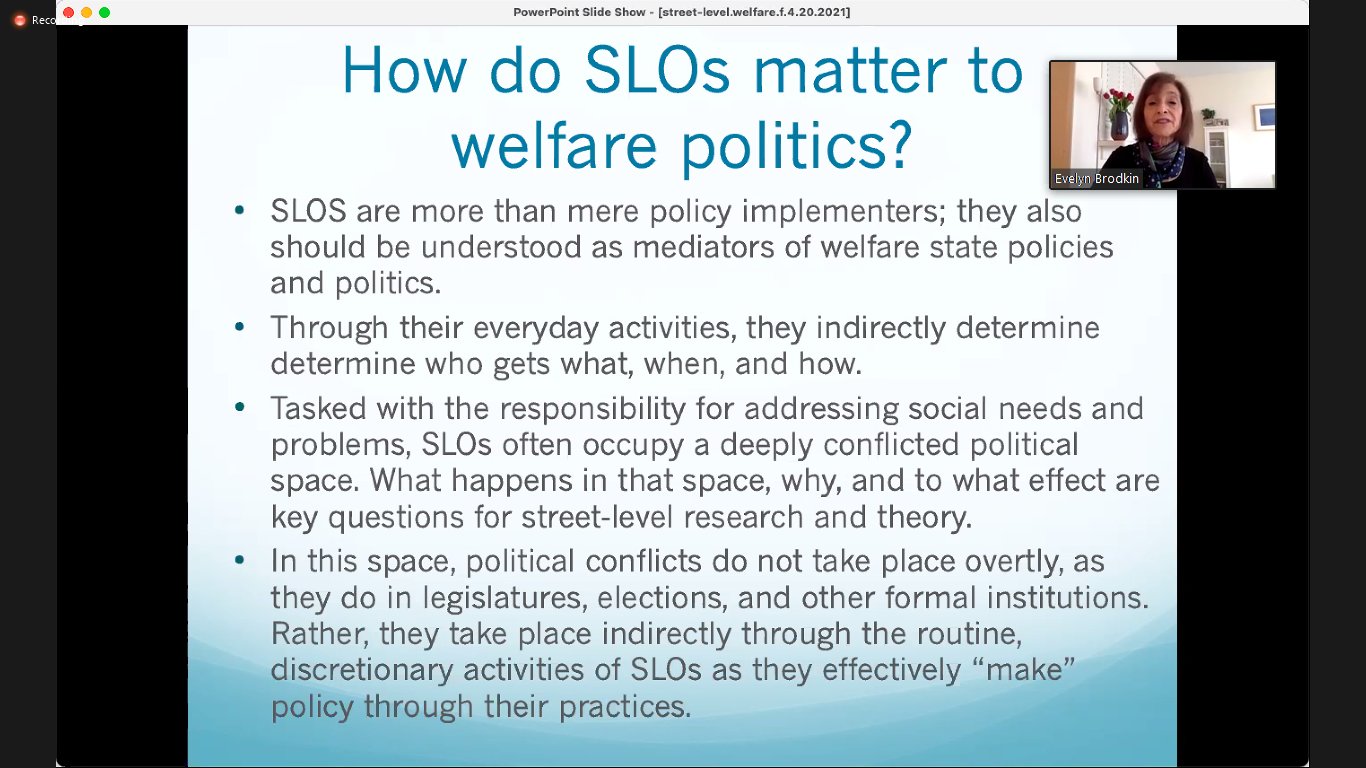
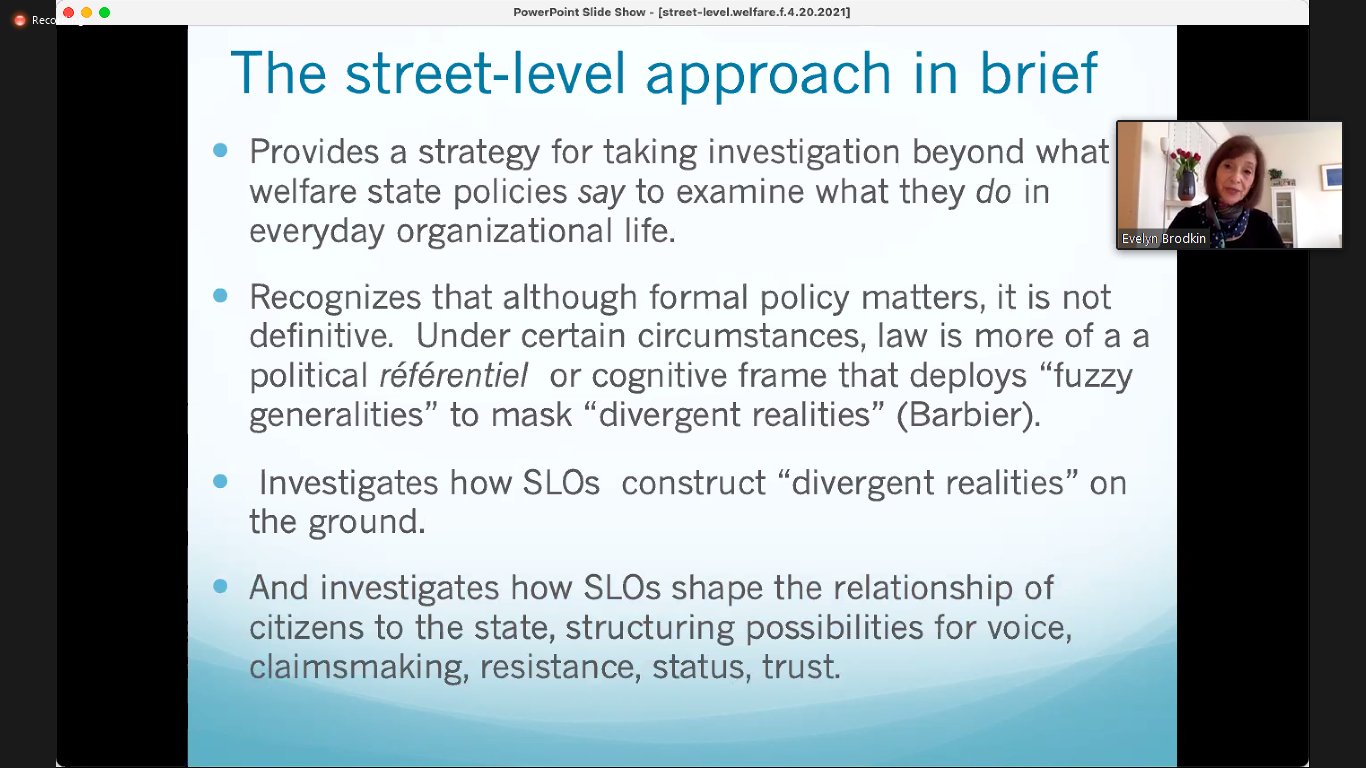
 Often SLO analysis deals with ‘sticky problems’ those problems that leave behind a definitive trace of their presence that refuses to go away. While the problem may be ‘resolved’ in an official or legal capacity, the ‘debris’ of the people left behind is very important to sift through and talk about.
Often SLO analysis deals with ‘sticky problems’ those problems that leave behind a definitive trace of their presence that refuses to go away. While the problem may be ‘resolved’ in an official or legal capacity, the ‘debris’ of the people left behind is very important to sift through and talk about. 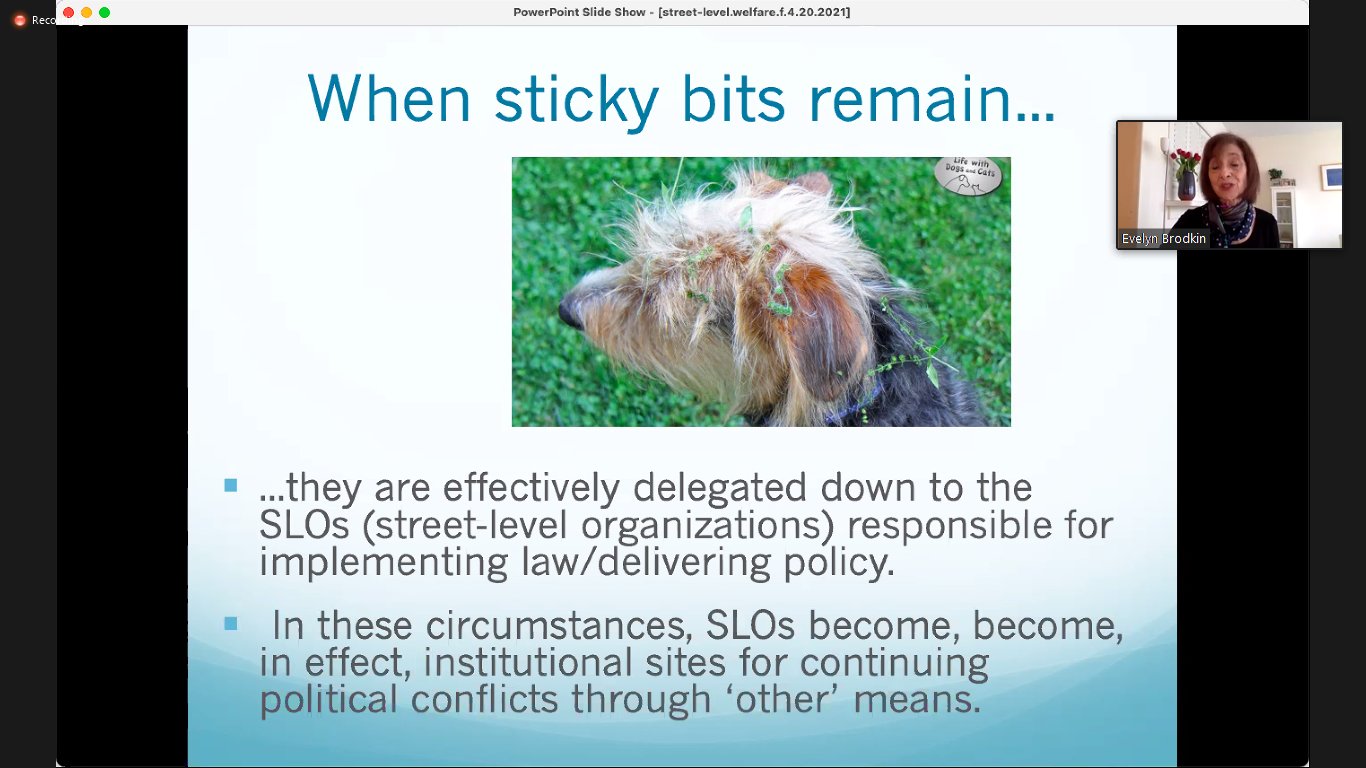
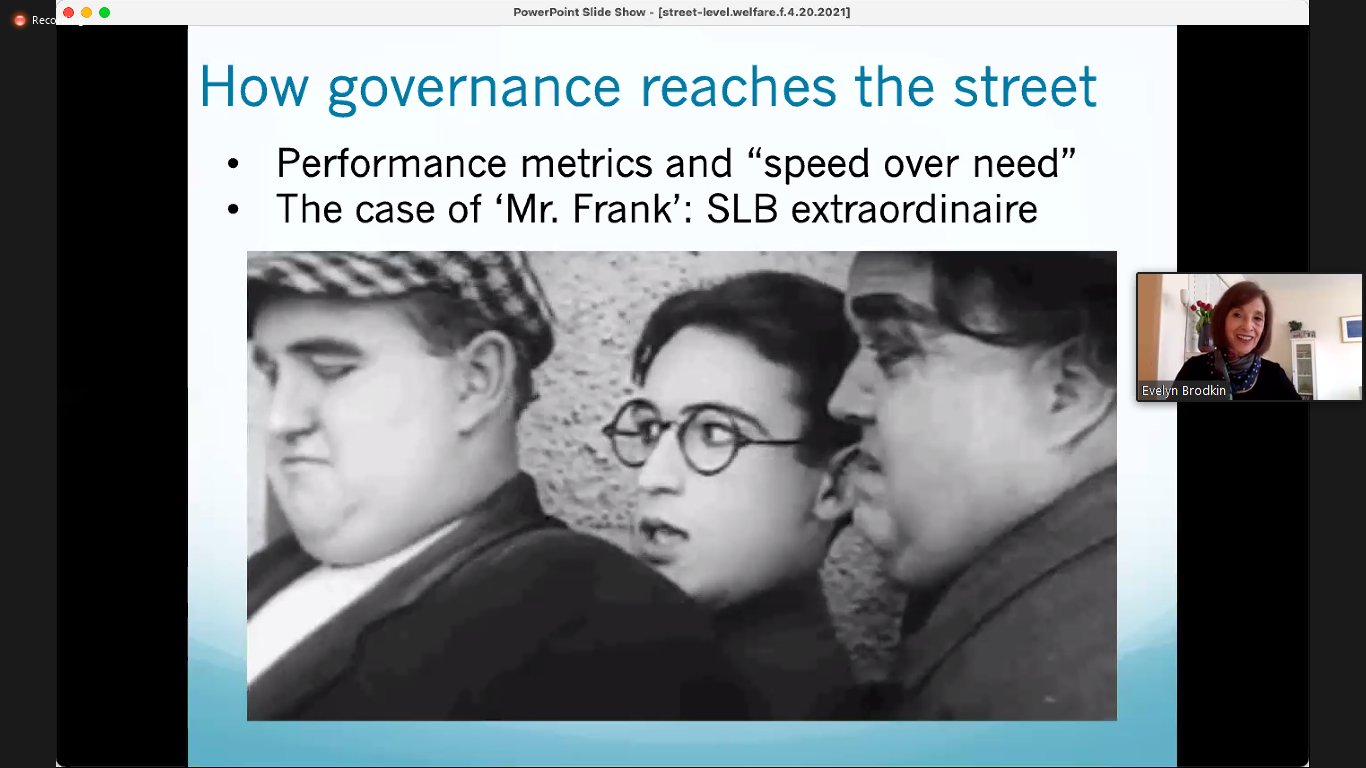
An applied example Evelyn shared from her work was “Mr Frank”. Mr Frank is an unemployment caseworker operating in the United States. He was consistently the most highly rated caseworker by the performance metrics imposed by his organisation. What did this entail?
Firstly Mr Frank scheduled all of his appointments for every client at 9am. This meant that he never had to wait between clients, as all his clients would arrive at 9am and they would have to wait for him to be available. This assumed that waiting had no cost, but if you were a single parent, person with disabilities (etc.) then waiting has a significant cost.
Secondly Mr Frank sent all of his clients to the same workfare programme, one which was widely disliked by the unemployed people he sent there. Why did he do this? This was the most ‘effective’ programme, because the people managing the programme always sent him their paperwork on time, efficiency becomes conflated with effectiveness. The structure of this programme sent unemployed people to pick up litter and trash out on the street while wearing hi-vis vests. Many people wanted to do further education and training courses, but Mr Frank said no in virtually all these cases. These courses would not be as good for his performance metrics.
Many frontline SLO staff deal with this two pronged problem. They must deliver their service (e.g. welfare), subject to certain performance metrics, but they are also driven by a desire to help the people they are working with. Evelyn concluded her talk by discussing the ways in which SLO staff are often conflicted about what they do, earnestly wishing to help their clients, but acting in ways that are contradictory to these goals in order to meet performance standards.
Once Evelyn had introduced SLOs and the profound analysis it unlocks, Mary Murphy and Joe Whelan joined the discussion by raising points about discretion, performance standards, metrics, the strain staff encounter in policy delivery when it clashes with their values and the significant problem of access which haunts so many people who aim to conduct SLW research in Ireland. This led to an engaged and spirited discussion which got a lot of people in the audience talking about how access to SLO is so different across cultural and geographic boundaries. Evelyn spoke about her new research with asylum seekers in Denmark and Sweden, and how she was able to easily gain access because the workers in refugee organisations often find nobody wants to talk to them. This contrasted strongly with examples from Ireland and Scotland where researchers find it difficult, if not impossible to access staff to do SLO research.
Previous seminar: Lina Dencik in conversation with Ray Griffin – The Datafication of Welfare.
Next seminar: Arpad Szakolczai – Fairground Capitalism.
